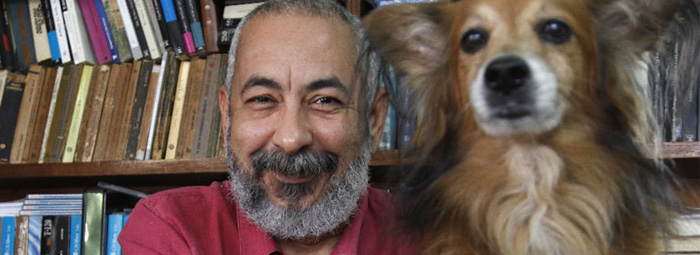Mario Conde is the creation of the Cuban writer Leonardo Padura. He has already featured in four of his novels: a cop who does not play by the rules but uses his knowledge of all the dark underside of the Cuban system, from illicit drinking dens to transvestites, to get results.
There is a strong tradition of crime fiction in Cuba since the 1959 revolution. According to British academic Steven Wilkinson, detective novels were promoted based on the precepts of Soviet social realism, with police heroes who rescued society from wrong-doers and upheld the virtues of communism.
There was also an annual prize for the detective genre – run by the Cuban police, and entitled The Triumph of the Revolution. But in 1989, Padura entered his first Mario Conde novel for this competition. The literary judges appointed by the Cuban police authorities found themselves in a quandary.
The Padura novel Havana Blue was by far the best-written work that had been entered for the competition. But its unorthodox hero and his trenchant views about the ills of Cuban society were hardly acceptable for the prize.
‘In the end,’ says Padura with a laugh, ‘it was the then Minister of Culture, Abel Prieto, who read the book and said that it had to be published.’
Since that first breakthrough, Padura’s books have become hugely successful both within Cuba and internationally, and the author has been able to travel abroad to promote his work.
‘Many of my professional friends in Cuba- scientists or doctors for example – find it almost impossible to get permission to travel. But for writers and artists it became much easier from the mid-1990s onwards,’ says Padura.
He points out though that readers in Cuba have few opportunities to get hold of his books, as there are almost no bookshops and few libraries with any money to spend. ‘When my latest novel was presented at the 2013 Havana Book Fair, more than a thousand people bought it. My hand nearly fell off from signing 800 copies.’
 Padura was in London recently to help launch the English translation of his latest book, The Man Who Loved Dogs. On this occasion, he has temporarily abandoned his Cuban detective Mario Conde, and made the central character the historical figure of León Trotsky.
Padura was in London recently to help launch the English translation of his latest book, The Man Who Loved Dogs. On this occasion, he has temporarily abandoned his Cuban detective Mario Conde, and made the central character the historical figure of León Trotsky.
The ambitious novel not only looks at how and why Trotsky was killed with an ice-pick on Stalin’s orders in Mexico in 1940, but also tells the story of his murderer, Ramón Mercader. Their lives and deaths are recounted by a third character, a Cuban writer called Iván Cárdenas Maturell, who is astonished to discover that Mercader, the dog-lover of the book’s title, is in fact living in Havana at the end of his life in the 1970s.
Maturell is the fictional double of Padura himself, who went on a similar voyage of discovery. ‘I discovered Trotsky’s house in Coyoacán in Mexico City on a visit in 1989,’ says Padura. ‘It seemed to me like a jail, a metaphor for not only his life, but for what had happened to his communist ideals.’
Intrigued by the figure of Trotsky and the reasons behind his assassination, Padura began to research his life back in Cuba.
‘I soon found out that Trotsky simply did not exist in any of the courses on Marxism taught in the university, or in any of the libraries. The only two books I could find out about him portrayed him as a traitor, someone who had betrayed the communist cause. There was nothing about his ideas, or the different path to socialism that he offered.’
After the fall of the Soviet Union and the opening of the archives from the Stalinist era, this situation gradually changed. And then Padura had another stroke of luck that was to help him shape The Man Who Loved Dogs.
‘I discovered that his assassin, Ramón Mercader, was living in Cuba under an assumed name. His presence was a secret known only to a few officials, but eventually his doctor agreed to talk to me and tell me about his final days, when he was dying horribly of cancer.’
In this way, thre figure of Mercader became the second strand of the novel, allowing Padura to look back on just how many crimes were committed in the name of socialism under Stalin – not only in the Soviet Union, but in Spain during the Civil War in the late 1930s, and of course in Mexico.
In the novel, it is the character Cardenas Maturell, described as a ‘good man whom fate, life and history had destroyed’ because he had always seen socialism as the path to utopia, who makes these discoveries. The result is a political thriller every bit as engrossing as Padura’s Havana quartet.
Padura himself shares the view that socialism as promoted by Stalin was a disaster. But he qualifies this: ‘We have seen the failure of Stalinism in the Soviet Union and in Cuba. But more recently we have seen that capitalism cannot provide any answers to making things better either. There must be hope that there we can find a different way in the 21st century.’
He is also hopeful that this ‘different way’ can be achived in Cuba, where he senses not only politcal change in the air, but a new willingness on the part of the two million or so Cubans living in the United States to enter into a real dialogue that could make that change fruitful rather than catastrophic.
In the meantime, Padura’s next novel will return to Mario Conde and his prowling around the shadowier side of life in Havana today.
*The Man Who Loved Dogs (translated by Anna Kushner) is published by Bitter Lemon Press.

